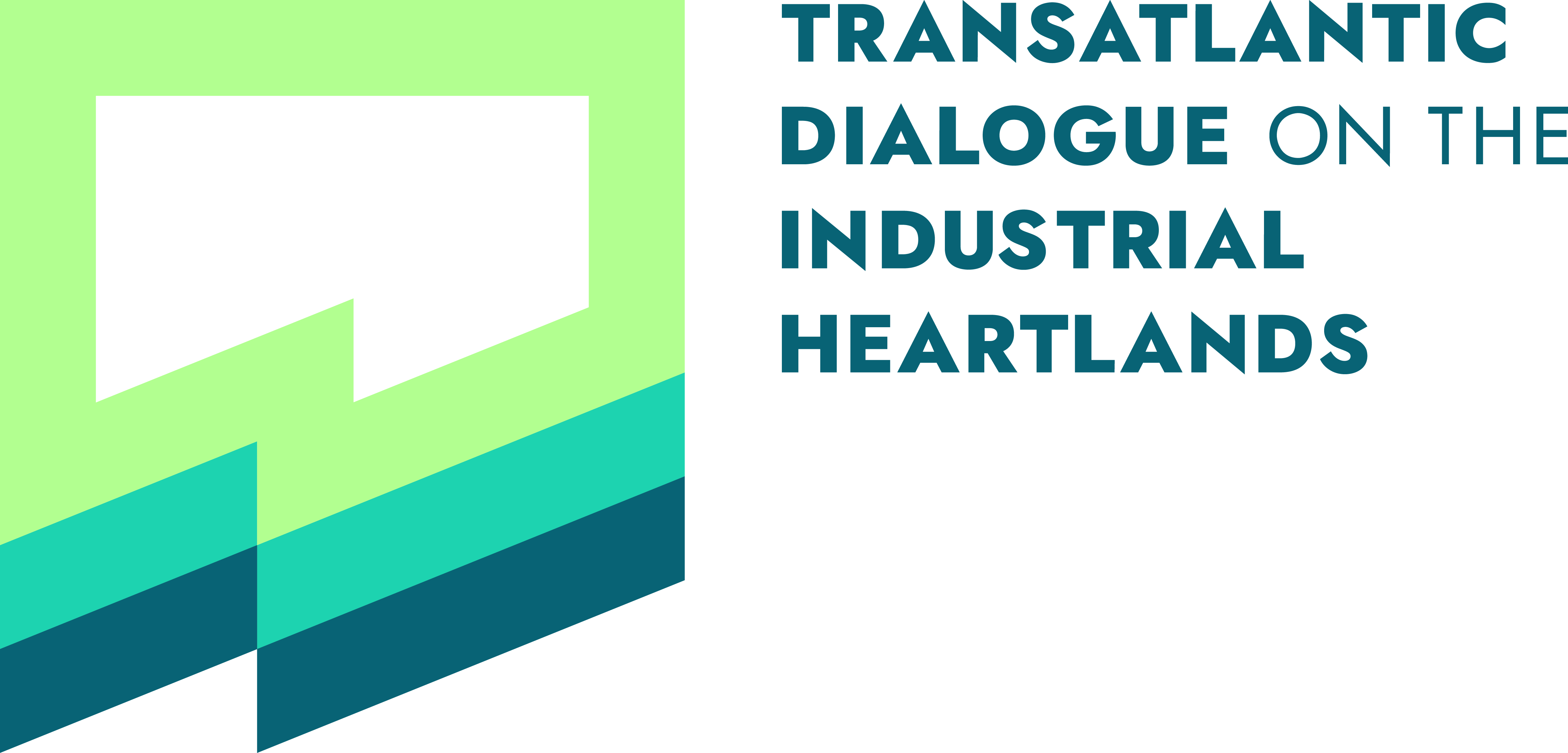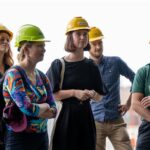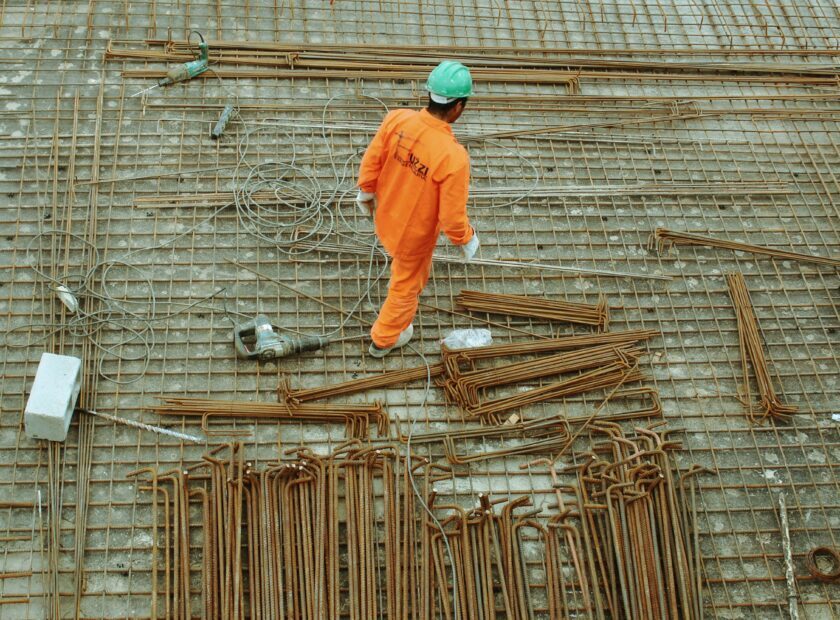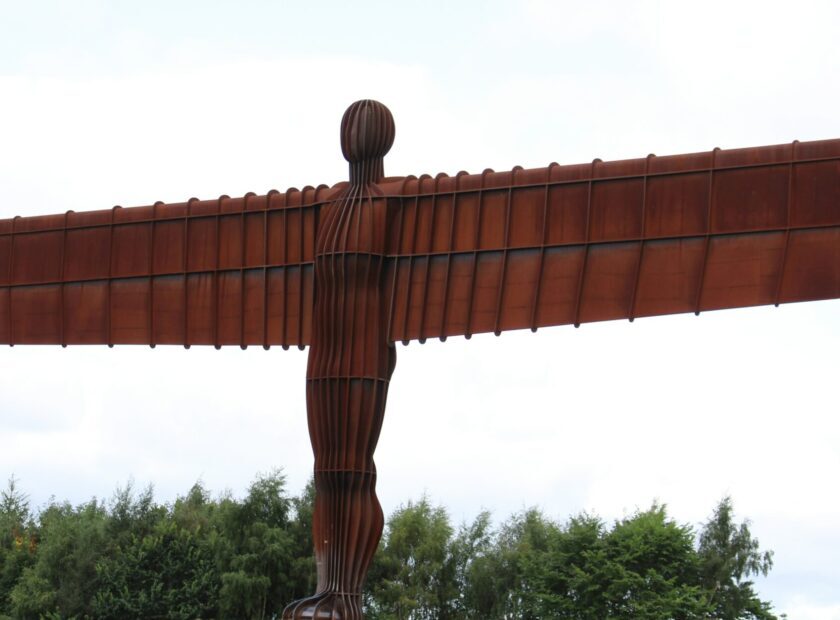Author: Rachel Stieb
At the Progressive Governance Summit organised by Das Progressive Zentrum on Friday 21 June, several of our project fellows participated in a panel discussion to debate strategies that empower the industrial heartland regions by creating positive narratives about their future. This roundtable discussion was organised as part of the Transatlantic Dialogue of the Industrial Heartlands project.
How can we change the negative discourse around the structurally weak and often left-behind regions that used to be the industrial heartlands and economic motors of modern nations? What should a new narrative look like that is encouraging and taps into the political and economic potential of these regions? These were some of the questions addressed in the panel discussion “From the Midwest to the Former East: Strategies to Empower the Regions that Matter” of the Industrial Heartlands Fellows1 with Henning Meyer, Chief of Staff and Director General for Policy and Coordination at the Saarland Ministry of Finance and Science, and Honorary Professor of Public Policy and Business at Eberhard Karls University of Tübingen, Germany, and chaired by John Austin, Director of the Michigan Economic Center and Member of the Project Consortium.
At the beginning of the discussion, John Austin highlighted that the current political debates, e.g. about rising costs of living and job losses, make it clear that many regions on both sides of the Atlantic do not feel that they are part of the economic recovery after the Covid pandemic. Instead, people feel left behind and trapped in relative decline, which makes them anxious about the future and more susceptible to nostalgia and resentment (e.g. anti-system, anti-woke elites, anti-immigrant, anti-Europe or threatening one’s personal status etc.). To counteract this loss of perceived status and opportunity and in order to shift the prevailing mood in industrial heartland communities to a positive one, providing a sense of hope for the future and restoring faith in the democratic institutions can be achieved through positive narratives.
Main takeaways from the discussion
I. Providing security through credibly explaining the benefits of investments to people in the industrial heartlands and their communities
As a start, major funding programmes, such as the Inflation Reduction Act and the Just Transition Fund, have been launched in the US and the EU respectively to alleviate the social, economic and ecological consequences of the transition to climate-neutral economies and to support the industrial heartlands in particular. However, as Colleen Dougherty and Friedrich Opitz pointed out, these historically high levels of investment have not yet led to more confidence in governments and green transition efforts (in the German public debate often referred to as “transformation”). Instead, Colleen stated that there seems to be a great disconnect between efforts to explain how this unprecedented government spending is benefitting individuals and regions alike and an overwhelmed feeling caused by the rising cost of living. As a notable exception to this observation, Henning Meyer referred to the Transformation Fund in the German state of Saarland, which was introduced in response to the Russian war of aggression against Ukraine to support the energy transition and industrial transformation in the region. According to Henning Meyer, three points have been particularly important in the successful implementation of the fund so far:
- Saarland as a region has often gone through times of change, and the people there see transformation as part of their identity and as a challenge that can be accomplished together,
- Advantageous for the joint overcoming of this challenge is that Saarland has a closely knit society, in which the population comes together in different contexts in their daily lives and where social classes mix, which leads to more political stability,
- It was clearly communicated from the outset what the industrial transformation entails. In manufacturing, there would be three cases. In the first case, the product could remain the same, but the production processes would have to change, e.g. in the case of steel, which Saarland is renowned for producing. A forward-looking industrial policy would be important to ensure that the product remains the same, but the production process is more environmentally friendly. In the second case, the product itself would have to be changed in order to meet new standards, such as in the automotive industry, where cars are moving from combustion engines to electric motors and hydrogen technology. And finally, in the third case, completely new industries would have to emerge in order to meet the diverse demands of the future.
“The industrial transformation not only means greening the old, but also investing in the new […], so the Saarland Transformation Fund is divided into the three i’s: industry, infrastructure and innovation.” – Henning Meyer
II. Creating optimism through investments in reindustrialisation and infrastructure alike – and the promotion of local democratic participation
As Linus Platzer emphasised, the Structural Development Act implemented by the German federal government will provide for €40 billion to be invested in Germany’s coal regions by 2038 in order to cover job losses caused by the coal phase-out and diversify the economy on the one hand and to initiate sustainable regional development on the other. This allows investments in industrial transformation to be directly combined with a strengthening of the social and natural infrastructure. He added that it was especially important to invest in education and democracy in order to prepare the communities for the changes ahead and ensure that their voices are heard. This would also promote creativity and innovation in the long term and emphasise the local population as agents of a positive change.
To promote democracy in the regions, Vera Gohla explained that more citizen participation could be achieved through citizens’ assemblies on specific topics and the involvement of municipalities as shareholders in regional renewable energy projects such as wind and solar parks (learn more about this topic in our study Our Energy Transition – How Local Participation Can Shape Sustainability Transformations). Christopher McClain expanded on the point of democratic participation and emphasised the benefits of citizens, government and the private sector working together to drive forward change. He illustrated this with the example of Michigan Central Station, the train station that Ford Motor Company recently reopened in the city of Detroit, which is symbolic of all the people who came to Detroit to work in the automotive industry. This train station was abandoned since the 1980s and exposed the decay and general decline of the city for a long time, until the private sector through Ford worked together with the city government to create councils that revitalised this cultural centrepiece. Michigan Central Station now stands as a leading example to the entire region of how cooperation and hope can lead to positive change that honours old glory days and creates space for innovation and community.
“People need to have a sense of reclaiming control […].” – Whitney Terrill
Ultimately, with a functioning social and natural infrastructure in place, highlighting the advantages of the industrial heartlands, which are often sparsely populated regions, can help create more positive narratives, as underlined by Colleen Dougherty. Rural regions can and should advertise a quieter and slower life, good living conditions for families and for raising children, as well as affordable housing, which is increasingly becoming harder for people in bigger cities.
Closing this discussion, John Austin emphasised the importance of supra-regional and international cooperation in developing solutions and sharing best practices to promote positive narratives and changes in the industrial heartlands, and that with the example of Saarland, we should recognize that transformation is an ongoing process, in contrast to a binary situation where a society either overcomes the challenge or does not, as change is always needed to keep up with the challenges of the future.
About Progressive Governance:
Progressive Governance is a series of regular conferences and publications that brings together progressive changemakers from around Europe and North America to discuss and debate how to make our societies more green and just, how to develop best-practice strategies and how to build the capacities to govern from the local to the international level.
Find out more about the Progressive Governance Summit 2024 and rewatch all highlight debates here and on our YouTube Channel! See the Progressive Governance Co-Hosts, Partners and Supporters here.

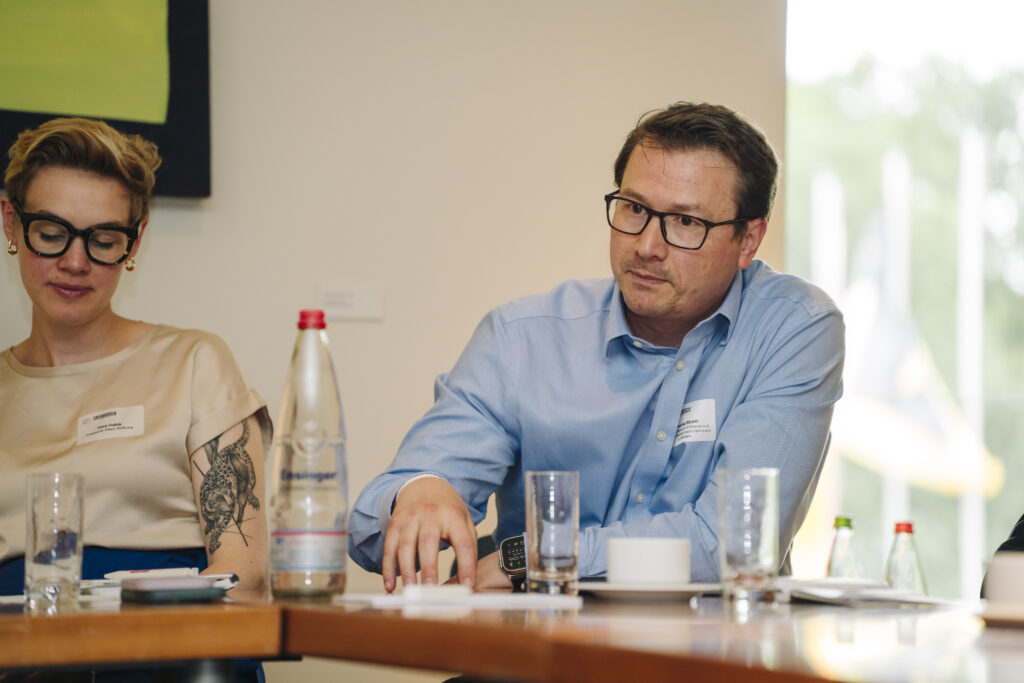
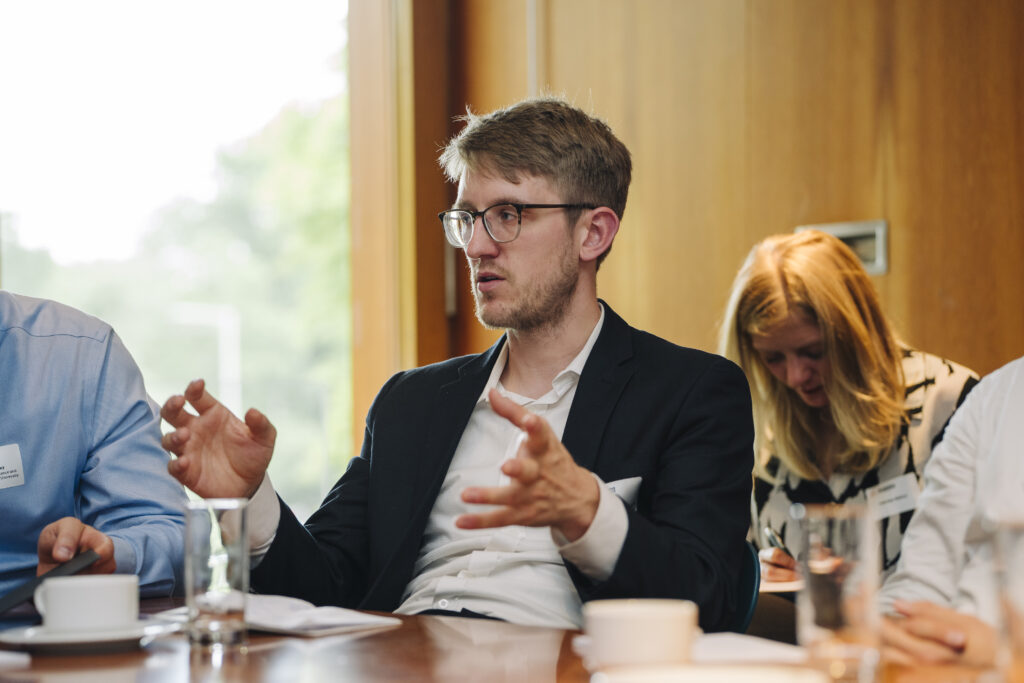
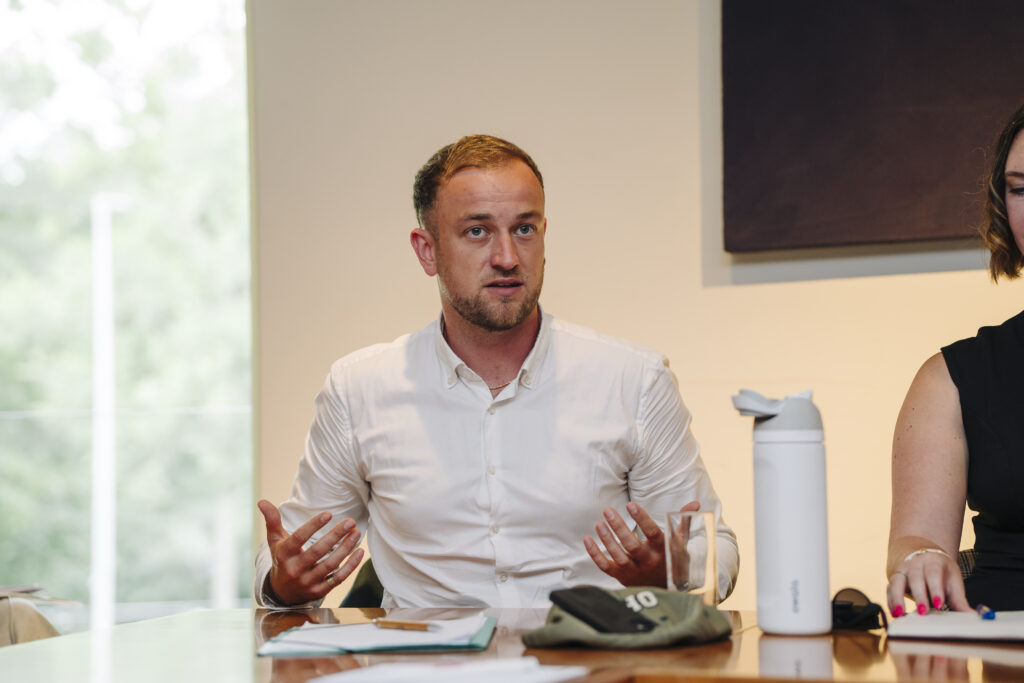
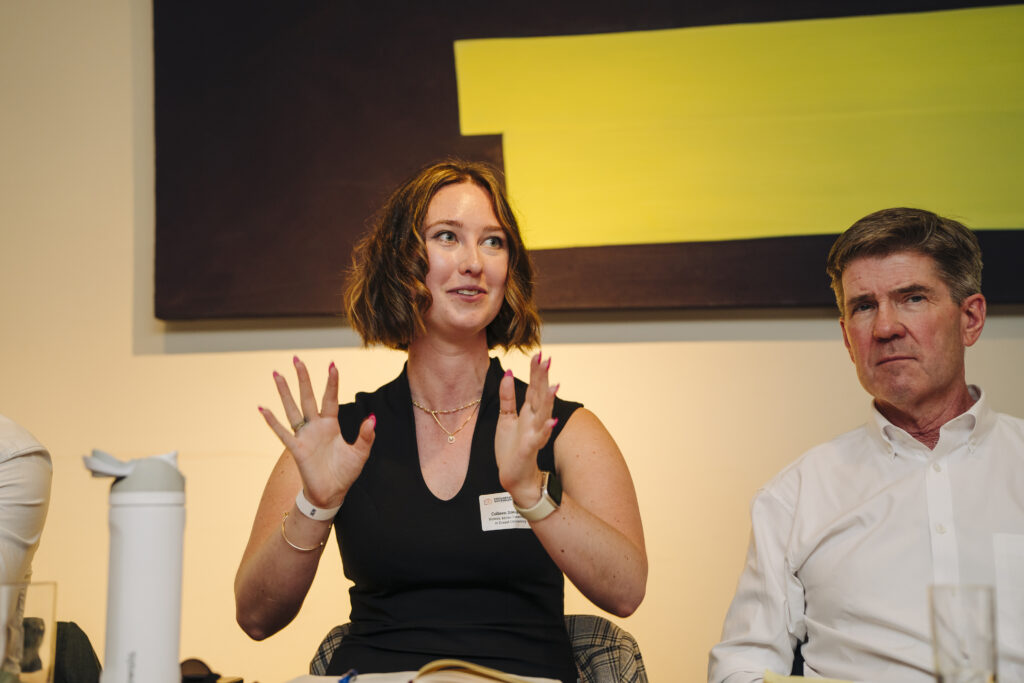

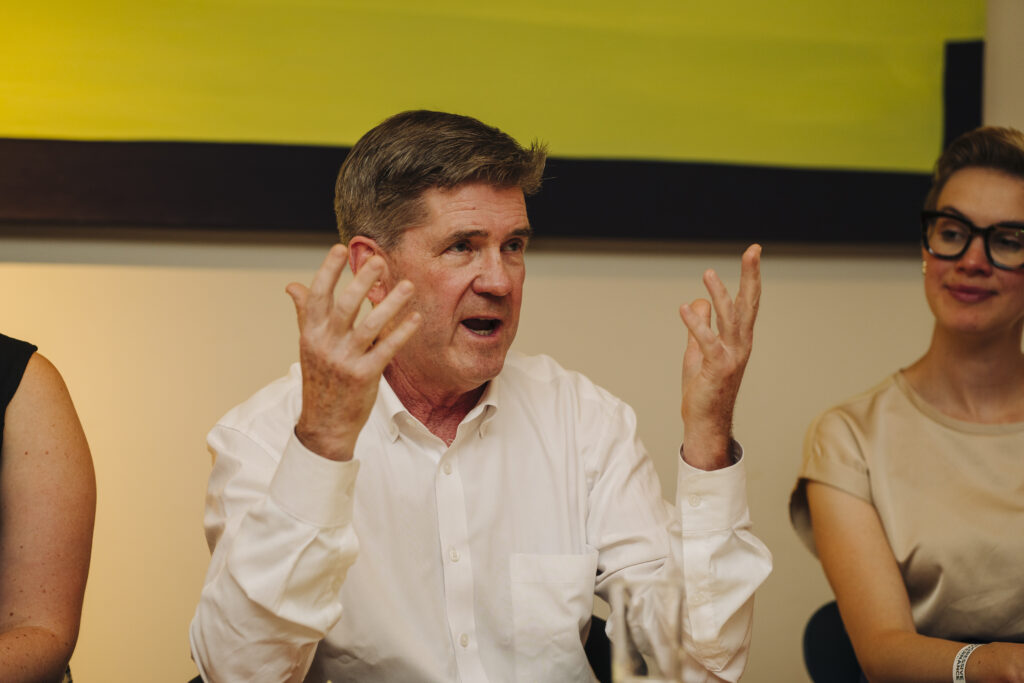
(Fotos: Fabian Melber)
- Colleen Dougherty, Friedrich Optiz, Linus Platzer and Vera Gohla attended the discussion in Berlin and were joined online by Whitney Terrill and Christopher McClain live from the States. ↩︎
